Apple skin leather is one of the most exciting new materials — here’s why you should be interested.
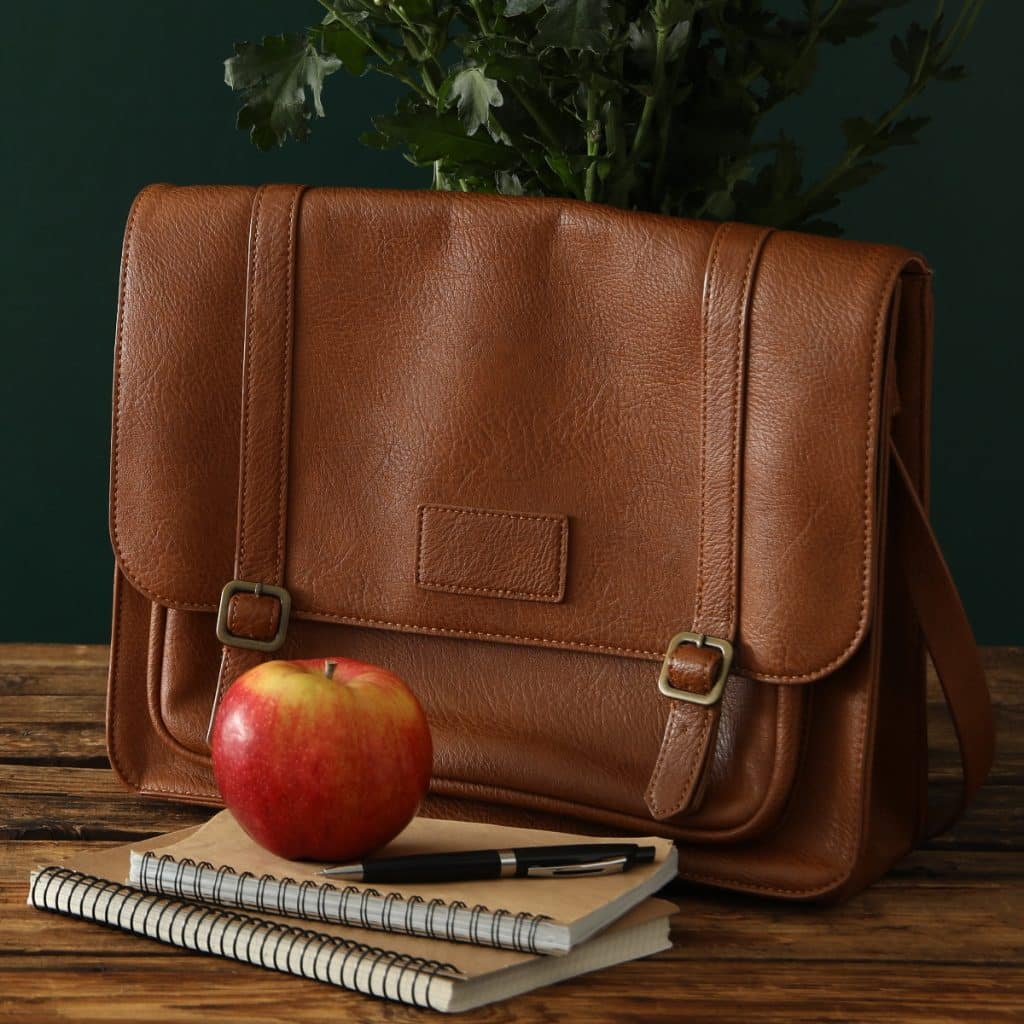
Leather has always been a big part of men’s fashion, and that’s still true today.
The material’s durability and longevity and its traditionally masculine associations have made it an integral menswear ingredient used for jackets, shoes, wallets, belts, and more.
But despite its status, leather has one big drawback: its production is doing a number on the environment.
The leather industry either directly or indirectly contributes to environmental issues such as deforestation, methane production, chemical pollution, and hazardous waste dumping.
Although the leather industry is taking on more sustainability initiatives, it’s not enough. In fact, many people are asking whether leather production can ever be truly sustainable.
And since humanity is facing more problems related to climate change, there’s a push for more sustainable leather alternatives.
Fake leathers have been around for years. However, most are chiefly made from polyurethane (PU), a “generally unsustainable” plastic-based material.
Instead, companies focus on producing alternative leathers from natural compounds, and that’s where apple leather enters the picture.
What Is Apple Skin Leather?
Apple leather is an alternative to cow leather made from apple pomace, the discarded byproduct of apple processing. Pomace includes the pulp, skin, seeds, and basically everything but the juice.
And surprisingly, there’s a lot of pomace to go around. Cornell University has estimated that between 25 and 40 percent of apples end up as discarded pomace.
Unfortunately, even though apple pomace has both nutritional and material value, it’s typically not repurposed. Instead, it often gets landfilled.
Thankfully, apple leather companies are helping reduce pomace waste and tap into this underused resource.
Is Apple Leather Sustainable?
In short, apple leather is a big improvement over other leathers, but it’s still not as sustainable as it could be.
Apple leather is produced by combining repurposed apple pomace with PU. This makes it different from other leather alternatives made entirely or mostly from PU.
Since the production of apple skin leather helps reduce waste and uses less PU than traditional vegan leather production, it’s a huge step up in terms of environmental impact.
Compared to other vegan leather alternatives (and arguably even cow leather), apple leather is much more sustainable.
However, the fact that apple leather is often up to 50% PU is not ideal. It’s possible that PU will be replaced with a more sustainable compound in the future. If that were to happen, that would make apple skin leather a top material in terms of sustainability.
How Does Appleskin Leather Durability Compare To Real Leather?
Because apple skin leather is such a new material, it’s hard to make any definitive statements about its durability.
Apple leather has only been in production for a few years at this point, but it’s already proving to be a viable alternative to cow leather.
Although it doesn’t look or behave exactly like cow leather, apple leather is surprisingly close to the real thing. It makes sense — after all, apples are often fairly leathery.
With production improvements and new technologies, apple leather could easily become just as long-lasting as cow leather.
Which Companies Make Appleskin Leather?
Italian company Frumat owns the rights to appleskin leather production, although Frumat itself does not produce the material.
The company’s AppleSkin™ is a vegan and cruelty-free leather alternative made from apple pomace, water-based PU, and lyocell. Manufacturers are already using AppleSkin for shoes and handbags.
Currently, VEGATEX is the largest producer of AppleSkin leather.
6 of the Best Apple Skin Leather Products
Curious about this plant-based material? Here’s a closer look at 6 of the best apple leather products you can buy today:
CLAE Apple Collection Shoes
LA-based shoe brand CLAE offers a line of apple leather sneakers made with AppleSkin.
The line features four of CLAE’s most popular silhouettes, including the Bradley, a great Common Projects alternative.
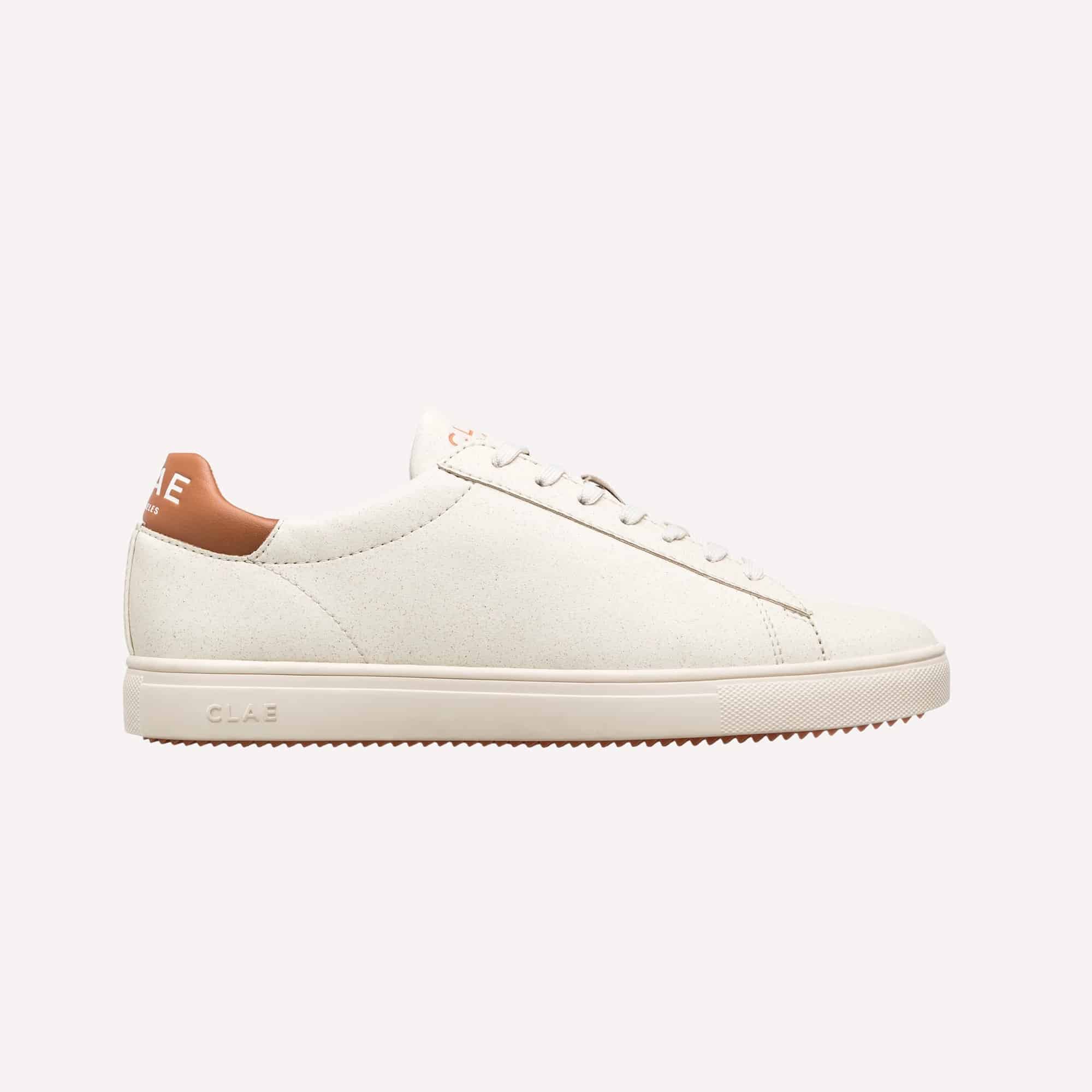
These 100% vegan shoes also use recycled mesh, laces, foam insoles, and GOTS-certified organic cotton lining.
NAE Canu Black Apple Leather Cross Body Bag
NAE Vegan Shoes unsurprisingly specializes in footwear, but the Portuguese brand also makes cruelty-free accessories, including the Canu Black Apple Leather Cross Body Bag.
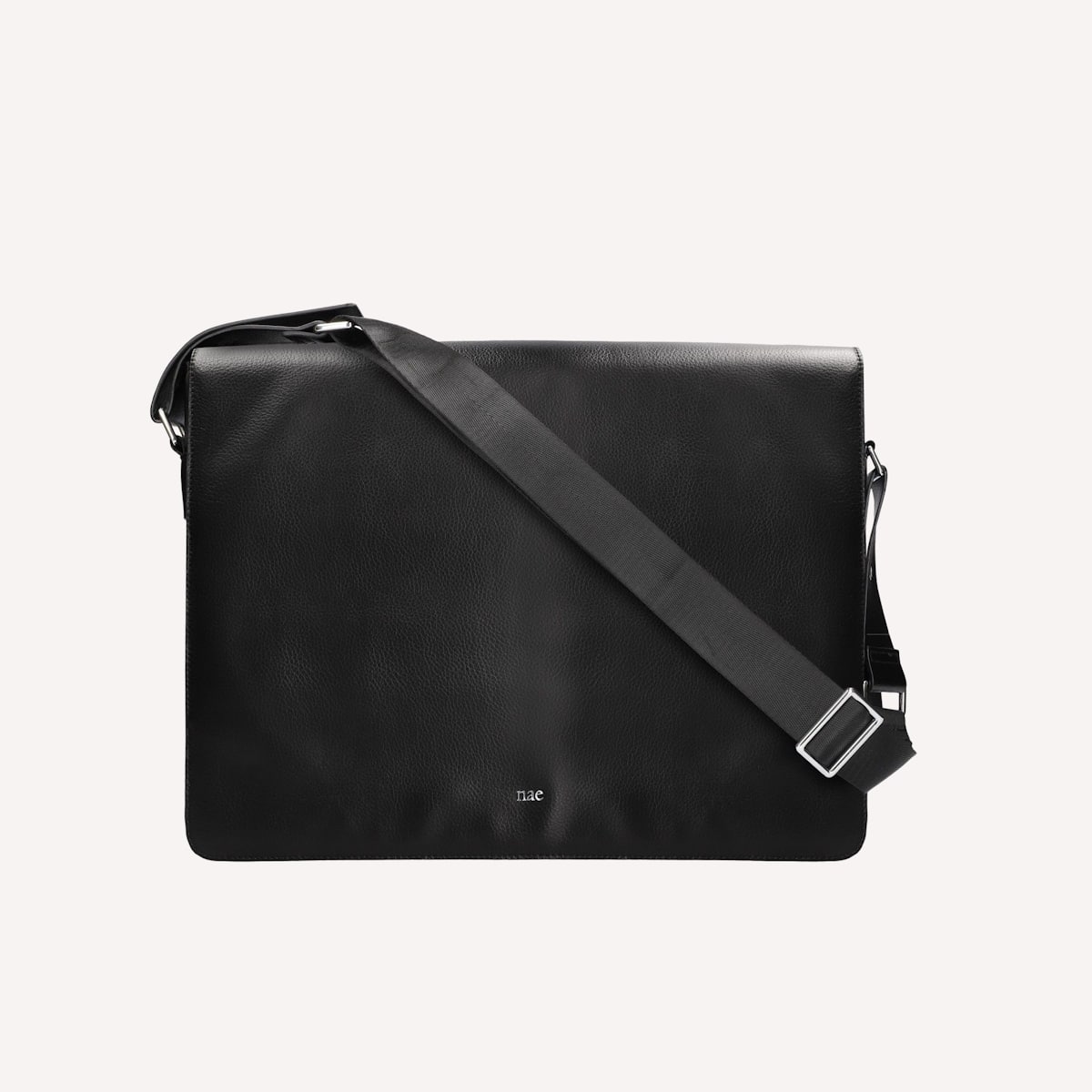
This messenger-style bag is sustainably and ethically manufactured in Spain using AppleSkin and GOTS-certified organic cotton. It features padded interior compartments, an outer pocket, card holders, and magnetic buttons.
Aesthetically, the bag nails the leather look with its pebbled texture — it’s much closer to the real thing than other vegan leathers.
NAE claims the bag is hypoallergenic and water-resistant (but not waterproof), making it an even more practical option.
ColaReb Strapple
While apple leather is still a burgeoning material, it’s seen a good bit of use as a material for watch straps. Of all the options out there right now, the Strapple line from Italian strap maker ColaReb stands out.
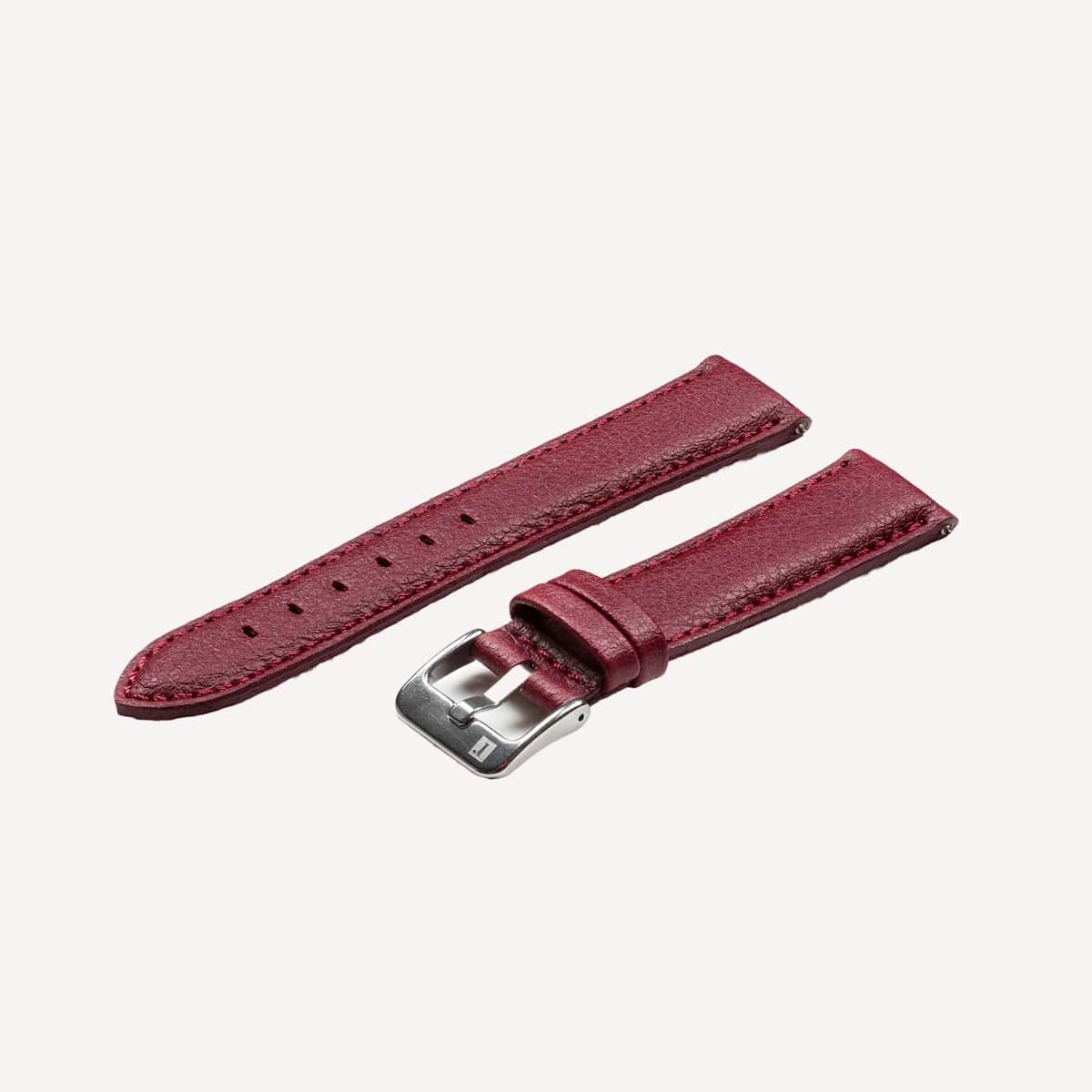
These apple leather straps are available in 20mm, 21mm, and 22mm sizes, and you can choose from seven colors. The straps all feature matching thread and silver buckles.
ASHOKA Paris Apple Skin Reversible Men’s Belt
If you’re in need of a stylish vegan belt, ASHOKA Paris has you covered. The brand’s Apple Skin Reversible Men’s Belt is a handsome bit of kit that features a deep navy on one side and a rich burgundy on the other.
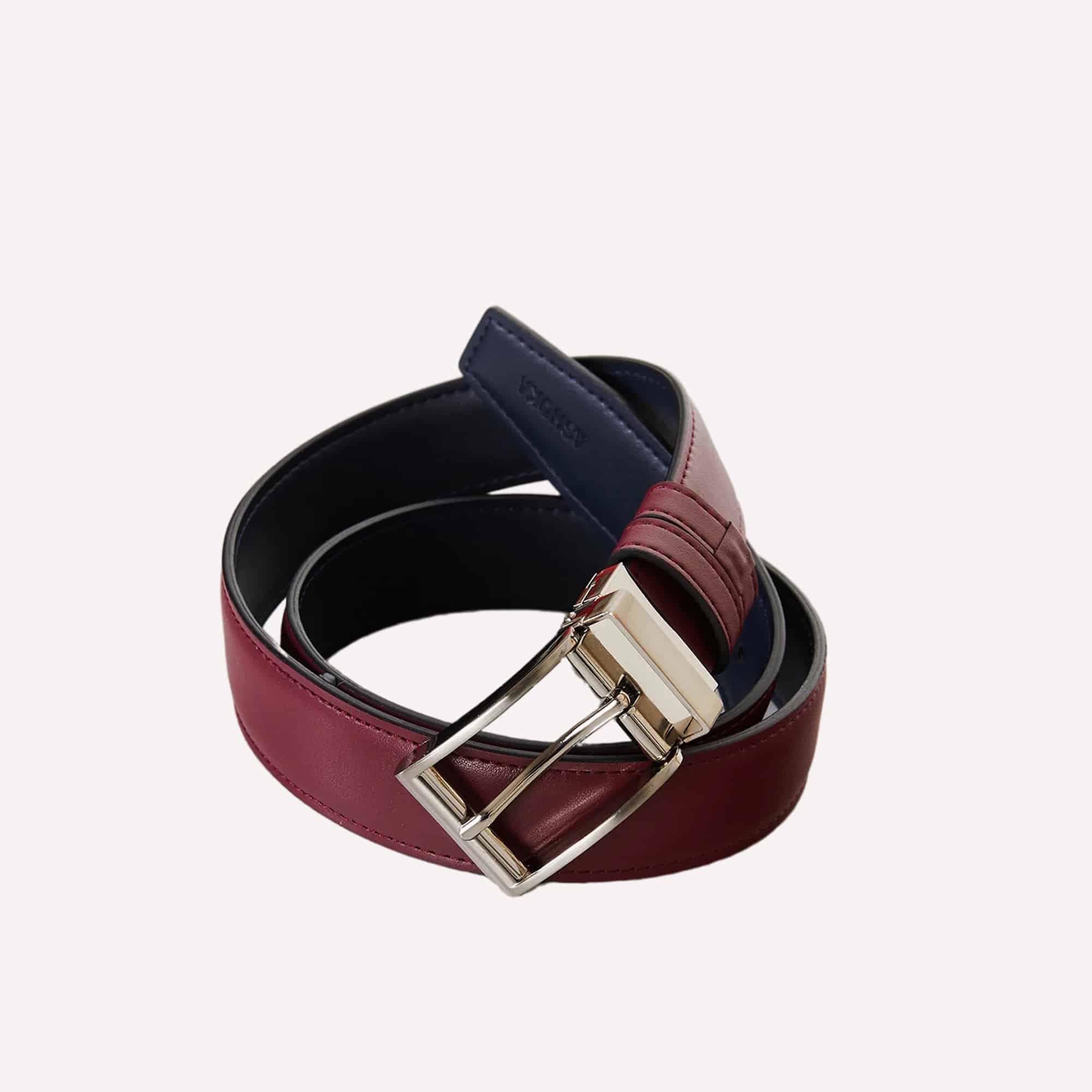
The color choice means this can work as a dress belt, but it’s also a good everyday belt. It’s available in two lengths (90 cm and 103 cm) and comes in an ecru linen pouch.
Gus* Modern Mix Modular Furniture
At this point,you’ll mostly only find Apple leather shoes and accessories, but Canadian furniture brand Gus* Modern has taken the material to a new level by using it for sofas, chairs, sectionals, and more.
The company’s Mix Modular line is available in a cognac-hued apple skin leather designed specifically for Gus* Modern.
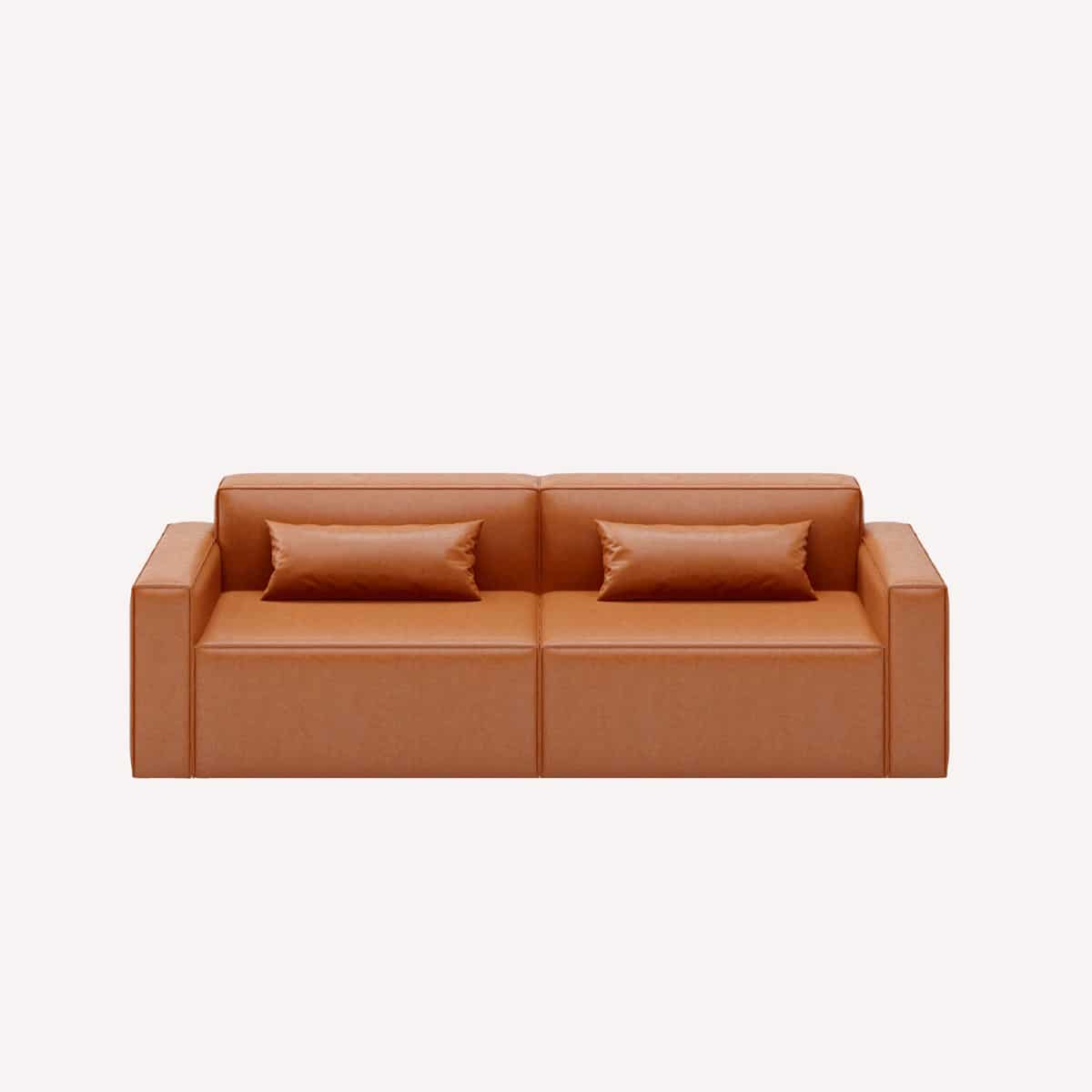
Apple skin leather isn’t the only sustainable part of this furniture, either — it’s also made using FSC-certified hardwood and synthetic fill made from recycled water bottles.
Meridio Anurka Apple Watch Band
Confusingly, the Anurka watch strap from Meridio is an apple leather Apple Watch band.
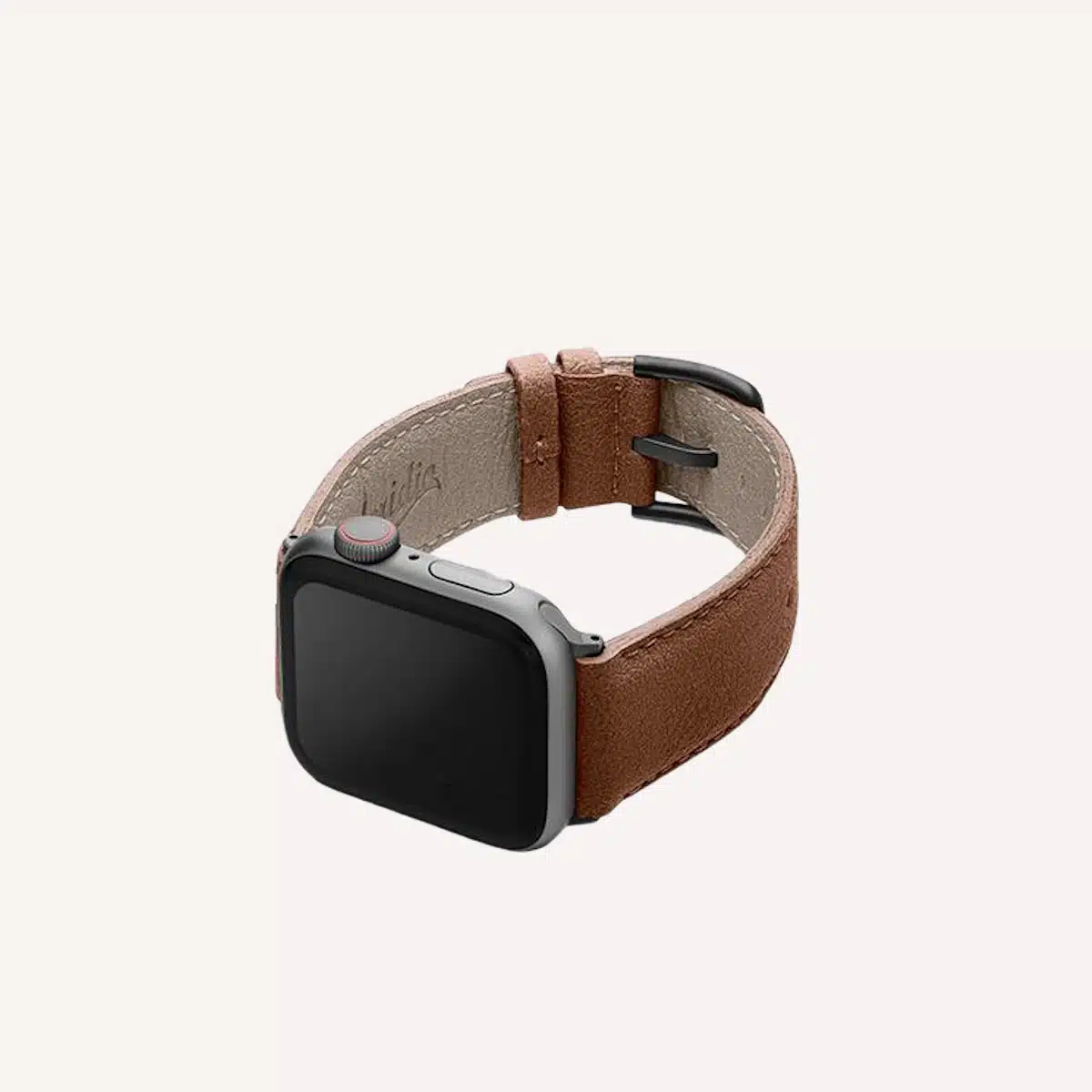
It’s not an easy product to search for, but it’s one of the best vegan watch strap options for the Apple Watch. (My girlfriend has had this strap for the past two years and loves it).
The band is compatible with the Series 8 (and Ultra) and works with all previous models.
Apple Skin Leather FAQ
Still wondering about this unusual material? Here are answers to some common questions:
Is apple leather vegan and cruelty-free?
Yes! Even though it’s still called leather, apple leather is 100% animal-free.
Is apple leather sustainable?
Apple leather is more sustainable than other vegan leathers, and some people argue it’s more sustainable than cow leather. However, it still uses PU, so it’s not completely sustainable.
Will apple leather develop a patina?
The jury is still out on this, but probably not, as vegan leathers don’t develop a patina like cow leather.
Apple Leather: A Promising Alternative
Apple leather is a promising alternative that could change the game, but it is a brand-new invention.
That said, apple leather is currently a fantastic material choice that’s a lot more sustainable than other materials. It’s not perfect, but it’s a big step in the right direction, and that should be commended.
Questions? Comments? Leave them below!






One thing I didn’t see was how durable this material is supposed to be. How does it compare to both real leather and most fake leathers?
Great question. It depends on the exact type of apple leather, but generally it has a durability similar to that of other vegan leathers. Since it’s a relatively new material, there’s not that much info on how it will age as real leather does, but what I’ve seen looks extremely promising.